Kellie Curtain [00:00:06] Let's be Upfront about families with a history of breast cancer. It can be a catalyst for vigilance and early detection, but it can also cause anxiety, sometimes unnecessarily. Genetic testing is available, though it can lead to more questions than answers. The negative result doesn't mean you won't develop breast cancer, and for around five per cent of Australians who do carry a faulty gene, there is much to consider. Should you undergo preventative surgery or wait? And what about your children? If and when should they be tested? These are just a few of the decisions that Sam Diccico and her family had to make. She joins us today, as does Associate Professor Yoland Antill, who is a medical oncologist and cancer genetics specialist. A reminder that Upfront is an unscripted conversation and is not intended to replace medical advice, nor does it represent the full spectrum of experience or clinical opinion. We urge our listeners to exercise self care as the content may be triggering or upsetting for some. Welcome to you, Sam and Yoland. Yoland, what is meant by a family history of breast cancer?
Yoland Antill [00:01:17] So that's a fantastic opening question because it can mean different things for different families. So family history can mean my grandmother developed breast cancer in her 70s or it can mean something as different as my mum developed breast cancer in her 40s, my sister's just developed breast cancer in her 30s. So the interpretation of a family history of breast cancer is already very diverse, depending on how many people in your family are affected by breast cancer, how old they were when they developed breast cancer, and sometimes even your ethnic background, where your family originates from can influence the interpretation of a family history of breast cancer.
Kellie Curtain [00:02:10] So there seems like a lot of variables. How do we know which ones count and when to actually start investigating the possible impact and relevance of a breast cancer, history, family history, a genetic link?
Yoland Antill [00:02:29] So the clues that we look for most commonly would be multiple generations affected by breast cancer; breast cancer and ovarian cancer in your family. Breast cancer occurring in both breasts in one woman, breast and ovarian cancer occurring in the same person. Male breast cancer and particularly male breast cancer coupled with some of those other risk factors and breast cancer and or ovarian cancer occurring at younger ages, so particularly in the decades in the 30s and in the 40s. Additionally, people of Ashkenazi Jewish ancestry have an increased risk for familial breast cancer based on the fact that some of the breast cancer genes are seen more commonly to have an error in their ethnic groups than some other ethnic groups.
Kellie Curtain [00:03:37] So, Sam, tell us briefly how large is your family tree when it comes to breast cancer?
Sam Diccico [00:03:45] Yes, it certainly is a tree, quite a large tree. So I'm third generation and all quite young. So looking at breast cancer itself, I've got great grandmother, grandmother and then it sort of skipped my mum in a diagnosis, but she's a BRCA carrier, which we're obviously going to talk about. I was diagnosed at thirty seven and now we sort of have it stems from that - so I have aunts, great aunts, cousins, second cousins.
Kellie Curtain [00:04:28] Yoland, that's quite a history, isn't it? Sam touched on the BRCA gene, what are the most common inherited gene mutations associated with breast cancer?
Yoland Antill [00:04:40] So Sam's family is typical of a high risk breast cancer family and BRCA 1 and BRCA 2 are the most common of the high risk genes. So her family represents one that has a number of alarm bells that would raise the likelihood of there being an underlying change in one of those two genes as a cause for that history of breast cancer in that family. And indeed, Sam alluded to the fact that there has been a genetic test with a change found in the BRCA gene to explain some, if not all, the cancers in her family.
Kellie Curtain [00:05:25] So only five per cent of Australians actually have what we call a faulty gene, is that correct?
Yoland Antill [00:05:34] Approximately, that's correct,.
Kellie Curtain [00:05:36] Unless you're tested for the BRCA gene or for a breast cancer gene, is there any other way of knowing?
Yoland Antill [00:05:45] Whether you have an actual mutation?
Kellie Curtain [00:05:51] Correct.
Yoland Antill [00:05:54] That's correct. So we would never assume that a family has the presence of a genetic change otherwise known as a mutation or what we now refer to as a pathogenic variant, unless a genetic test has been done and that testing confirmed the presence of that genetic change. But they can be family histories where there were a large number of family members who have histories of breast cancers. They've had gene testing and still no genetic changes identified.
Kellie Curtain [00:06:32] OK, so if you do have a genetic mutation, is it guaranteed that you will pass that on to your children?
Yoland Antill [00:06:45] No. So for all of the breast cancer genes that we routinely would test for, which includes the BRCA 1 and BRCA 2 genes, but also other breast cancer associated genes. You have two copies of every gene that you have, but it takes only a fault in one of the copies of the genes for the risk of breast cancer and this concept of hereditary breast cancer risk to be present. So when you conceive each of your children, you can only pass one of the copies of the gene that you have. So if, for example, we think that in Sam's family there is an error in the BRCA gene. When an individual, so when Sam's mum conceived each of her children, she has two copies of that gene, one that has the fault in it and the other that is perfectly normal. So with each conception, she can only pass one of the copies of the gene onto her child. And the other copy comes from that child's father. So there is a one in two or a 50 per cent chance at each conception that that genetic change would be passed on to that child.
Kellie Curtain [00:08:16] So, Sam, as someone who has the gene, as you have already discovered, that must be a fairly heavy weight to carry, not only as an individual, but as a family, knowing that you might pass on that gene to your children?
Sam Diccico [00:08:36] Absolutely. Yeah, Kellie, when my mum decided to go ahead and get herself tested, so she had to have, I believe, someone to compare it to in the family, which was a maternal cousin, which was positive. She was found to be positive and then told that, like Yoland just said, we would, my sister and myself, would have 50 per cent chance of also inheriting the BRCA 1 gene, which obviously I did. And also my sister did. At the time, I remember my mum really quite upset about it. And in my eyes, I was a mum, but I was also thinking, well, you know, I don't know why are so upset - you could have given me any gene. I could have had, I don't know, brown hair, blonde hair like that was just kind of the way I felt. I didn't harbour any thoughts of like why me or how could you do that to me? It was just it wasn't a thing, but it wasn't until my eldest daughter had her testing done and was found positive as well, that I really could relate to that. So it is a feeling of kind of disappointment clearly, and a 50/50 chance. What have I done wrong to sort of pass the wrong gene on? But I think that that's where families sort of pick each other up a bit and tell each other that it's fine. And it is, it could have been anything else. So I think in our family, we've done quite well with having each other's backs and and really being supportive to each other.
Kellie Curtain [00:10:24] Do you find that the knowledge of knowing you had the gene was power? When you found out that you did carry the faulty gene, you decided to not take any immediate action. You decided to just wait and see what happened, and then you actually did develop triple negative breast cancer.
Sam Diccico [00:10:47] Yeah, look, looking back, I feel like I didn't have fear as such. It was more anticipation and probably even thinking about it, a little bit of naivety and thinking that probably wouldn't be made. It won't happen to me. I think that was really my mindset for a long time. And my surgeon was happy with my decision to just consider just monitoring. And I was I was quite vigil with that too. So we were really good at doing everything, probably a little bit earlier than it was meant to be and a little bit more regularly than the general population. So I guess looking back, I think I did the right decision for me. That's not necessarily to say that it's the right decision for everybody.
Ad [00:11:36] BCNA's My Journey online tool is a new resource that gives instant access to trusted and up-to-date information which is relevant to your breast cancer journey. For more information, visit my journey dot org dot AU.
Kellie Curtain [00:11:51] Yoland, we've just spoken about the fact that there's a 50 per cent chance of the gene being passed on, if, in fact you do have the gene mutation, what are your chances of actually developing breast cancer?
Yoland Antill [00:12:10] So the figures that we quote are a range of figures, I think it's important to remember that not everybody who is born with a change in their BRCA gene or any other breast cancer gene is associated with one hundred per cent risk of cancer development. And Sam, correct me if I'm wrong, but I think your mum has not had a cancer history, is that correct?
Sam Diccico [00:12:39] That's correct, yes.
Yoland Antill [00:12:40] So perfect example. And we don't yet know why some individuals do develop cancer, why some individuals would develop more than one primary cancer and why some develop no cancers. But with BRCA 1 and BRCA 2, the risk can be as high as around 70 per cent chance of developing a breast cancer during that individual's lifetime. We think that there is likely to be other genetic influences in why individuals may develop in association with their BRCA change, why they might develop breast cancer, lifestyle factors may have influence, but probably only a small influence. It's something that genetic teams around the world are trying to to work on to try and understand how we might manipulate that figure to to reduce those risks.
Kellie Curtain [00:13:52] And 70 per cent is extremely high, really. Sam, you didn't take proactive treatment, so to speak, or didn't elect to have a mastectomy, but when it came to your daughters, you had the genetic testing for your elder daughter. And what was the decision making process behind that?
Sam Diccico [00:14:20] Well, I think it was really the fact that at the time of my diagnosis, my oldest daughter was 15, so she really saw first hand what I went through. So she'd already sort of made up in her own mind that she was going to get tested. And I'm not sure at the moment, but at that stage, the age was 16 in South Australia when you could start the process of counselling before testing and then counselling with your result. And so she went through that with with an open mind. So she was ready for whatever that was going to give or throw at her. And once she got the the test result back as a positive, then it was kind of a no brainer for her. She wanted to go ahead as soon as she could and have a prophylactic bilateral mastectomy, which clearly at that age was never going to be an option. So she sort of went through the process of the age and getting all the different, I guess she went to probably three or four different surgeons that she felt more comfortable with, and that led her to be around twenty five when she had it done.
Kellie Curtain [00:15:41] Which is it's radical surgery, there's no way we can escape that. Yoland, what is the recommendation? Is there a recommendation for those that do have the the mutation and want to take decisive and preventative action? Will it actually completely prevent them from getting breast cancer?
Yoland Antill [00:16:05] So someone is found to carry a pathogenic variant in the BRCA gene, so a genetic mutation, they all have a discussion or in fact, often more than one discussion about managing their cancer risk over their lifetime. So what's right for an individual at one age might not be right for them at another age. We also know, in fact, some of my own research done in Australia would suggest that what an individual does to manage their cancer risks is influenced by what what they've experienced in their family. So for Sam, whose mum had never had a cancer but carried that genetic change was very different from her daughter, whose mother had had a breast cancer. So, we know that the more cancer that occurs in a family, the more likely an individual is to take up those more, as you put it, radical approaches to lowering the cancer risks by undergoing something like a surgical procedure to reduce the cancer risk. So, in other words, removal of breast tissue or what's known as a mastectomy or preventative mastectomy is something that a small percentage of people will undertake, and particularly at a very young age where they haven't had children themselves. It's fair to say that the management of ovarian cancer risk and the recommendations around ovarian cancer risk, the discussions are very different. And that is because most breast cancers are still diagnosed at an early stage, whereas the ovarian cancers that are associated with the BRCA genes are almost always at an advanced stage of diagnosis. And so the likelihood of being cured from your cancer is much less with ovarian cancer in the setting of a BRCA gene change than it would be for breast cancer diagnosis.
Kellie Curtain [00:18:36] OK, so you mentioned the discussion that is had when someone is found to have a genetic family history. How important is that discussion? It's not obviously just a case of getting a positive result and then making a decision. What's the importance of having a discussion about an action plan?
Yoland Antill [00:18:58] It's so important and it has to be individualised. What's right for one person is not right for another person. And so the discussions really need to be tailored around the person at the stage of their life, what experiences they have had in relation to the genetic change in their family, but also during their lifetime. So the discussions are very tailored and sometimes it is also tailored according to how much a patient wants to hear at any one time. So someone, for someone just hearing that they have the genetic change is enough in one consultation and they might come back for a second consultation to hear some more information. Whereas for another person, it's been something present in their family for such a long time so that they're already there, their knowledge around the impacts of that genetic change is so much further ahead than, for example, another person where the genetic change has come out of the blue.
Kellie Curtain [00:20:16] Sam, that was certainly your case with having two daughters, one who was very aware when you had your breast cancer treatment, but your youngest daughter was possibly quite oblivious to it all. And you've had two very different reactions from them in relation to what they want to do about their own situation. What is that?
Sam Diccico [00:20:40] Yes, well, my youngest daughter was only, well at the height of my diagnosis and treatments, was four or five, so she didn't see or couldn't understand what was going on. And memory isn't amazing either. But she also has just decided that she wants to be tested, which is great. It was a very natural progression, really. It was just the fact that it is always spoken about in our family. We don't not talk about things. We talk about exactly where all our history and where our genetic history is. So she wanted to have the testing done. She's done that. So she's done the counselling towards that. So had her results will be next. But she's decided that at 18, she's quite happy with monitoring, surveillance and probably just going down the track that I did at this stage. I can probably say her dad's not rapped about it. Her dad is sort of more knowledge is power and get them off. Then we don't have to think about it anymore. But clearly that age is relevant. And from a male perspective, it's very different. The emotions; there's a lot that is involved in wanting to make that decision of having a preventative mastectomy. I mean, I had no choice. I had it done for for different reasons. But I think making that choice yourself to want to do that, it impacts so many other things. And I know that my daughter, my eldest daughter, Emma, at this stage also I can now understand that it's not just an easy fix, it comes with a lot of other complications with the surgery and the recovery and the lasting effect of that as well. So I think Tyler's ready to know, understand, have her choice in front of her. But at this stage, she'll just be going down the surveillance path.
Kellie Curtain [00:22:51] And how do you feel about that as parents? Because your natural reaction must be to want to protect and avoid any cancer diagnosis if you can. Is it hard to not try and influence the decision?
Sam Diccico [00:23:09] I'm ok, as in, I did the same with Emma. I would have never influenced her decision, she's very strong willed and was always going to do it. I was probably more of the other side - do you understand this? Do you understand that? It's not all going to be basically it's not going to be you're going to go into hospital and come out with a great set of boobs at the end. It's not as as easy as that. And I think the same with Tyler. I'm happy for her to have - she's got time on her side. She's 18, so I'm not sort of too stressed about that yet. I think she'll probably, and once again, we don't have test results, so that could be a moot argument really in the end. But I think she'll make the right decision for her when the time comes.
Ad [00:24:04] Want to connect with other people who understand what you're going through at any time of the day or night? BCNA's Online Network is available for people at different stages of their breast cancer journey, as well as family and friends. For more information, visit BCNA dot org dot AU forward slash Online Network.
Kellie Curtain [00:24:25] Yoland, if Sam's youngest daughter gets her results and she doesn't carry the gene mutation, is that the end of it? Can it skip a generation and then come back or not?
Yoland Antill [00:24:41] No, if she doesn't carry- if she's not found to carry that genetic change at the time of her genetic testing, then the family does a little jiggy dance and celebrates because that's it. Because she only inherited the good copy of the gene from Sam and because her dad is unlikely to carry a genetic change because these are uncommon. We would anticipate that then her risk of breast cancer would go back to the general population risk. And because she was not born with that genetic change, she can't pass it on. And Sam, am I not wrong? You 'd do a jiggy dance.
Sam Diccico [00:25:24] I would do, I'd do a little jiggy dance, but also I'd be that mum that would be a little bit torn because I've got one and I've got one, do you know what i mean? I'll have Emma who you know, I don't know what she's like, so I would have no problems in thinking that she would never be like, oh, thanks very much, but yeah, it would be, it would be very bittersweet. Of course I'd be over the moon, but it would be a little bit bittersweet.
Kellie Curtain [00:25:52] And Yoland and given that Sam does have a daughter who did have the mastectomy. Does that mean she has no risk of developing breast cancer or is it just lower?
Yoland Antill [00:26:05] It's much lower, it's much lower even than the general population risk, so in good breast surgeon hands, the removal of breast tissue with mastectomy leads to a less than three per cent lifetime risk of breast cancer development. So it doesn't go down to zero. The general populations risk, just to remind our audience, is 14 per cent lifetime risk. So one in seven women in Australia will develop breast cancer. But her risks following bilateral mastectomy in good breast surgeon hands, not a general surgeon, a breast surgeons hands, you would expect that her risk of breast cancer would drop down to three per cent. It doesn't drop to zero because the breast is not like a kidney or a liver. If you take a kidney out, it's all gone. If you take a liver out, it's all gone. It doesn't pop out, a breast. Breast tissue extends up into that armpit area. It extends into the midline of the chest. And so it's not as easy as people might imagine to remove all breast tissue.
Kellie Curtain [00:27:30] If you were to develop breast cancer, someone who has the gene mutation, is it likely to be the same type of breast cancer as those in your family? Or is it, it could be any number of breast cancers. Is the nature of it different?
Yoland Antill [00:27:49] So that's a great question and it depends on the gene that you have in your family. So for BRCA 1, 80 per cent of the breast cancers that we see in association with BRCA 1 tend to be the type of breast cancer that Sam experienced. What we know as non hormonal and non HER2, in other words, a triple negative breast cancer. But for the other breast cancer genes, no there's quite a range and what one individual experiences in their in their lifetime is not necessarily the same type of breast cancer that someone else in their family, even though they carry that same genetic change, they might have a very different sort of breast cancer.
Kellie Curtain [00:28:38] And is that the same with the age of diagnosis if a family member developed it early, is that likely to be mirrored in the next generation or not?
Yoland Antill [00:28:50] So it can, it varies a little, and this is something that we're still working on as researchers, but certainly if there is very young onset cancers in a family, then the recommendations for managing that cancer risk might be tailored to reflect that earlier onset of cancer.
Kellie Curtain [00:29:17] So when is risk reduction surgery advised?
Yoland Antill [00:29:20] So it's never advised, it's an option that individuals can take up.
Kellie Curtain [00:29:26] OK. Sam, what led you or you didn't have a decision, you had a triple negative, I think your mum actually had some preventative surgery, was that correct?
Sam Diccico [00:29:37] She did. She had a bilateral mastectomy and reconstruction in 1982. So quite a while ago. And considering the difference between my mum and my daughter's surgery was chalk and cheese really. Quite, quite barbaric, almost back in the early 80s, the way they do the reconstruction. Clearly, they weren't as adept at wanting to have a cosmetic finish. I think it was more about wanting to get the breast tissue out. And that was it.
Kellie Curtain [00:30:17] Yes, Yoland, it must be quite common for people to say, oh, my aunt did this or my friend did that, it's important to note that things are always changing and information is always being updated. And it's really important to have a discussion relevant for your time, not what someone did twenty years ago, or even five years ago, I would imagine.
Yoland Antill [00:30:44] Absolutely, and plastic surgical techniques in terms of reconstructing the breast shape. And I would emphasise it's just reconstructing a shape, it's not actually reconstructing a functional breast, so a woman would not be able to breastfeed after she's had a mastectomy and the sensation in the breast is completely altered, even if a woman elects to retain her nipple. So she has what's known as a nipple sparing mastectomy, the sensation in the nipple, the function of the nipple is still very different than prior to that surgery. But surgical techniques are changing all the time. The other thing that will influence the choice of a reconstruction of a breast shape would also be the individual's size. So if someone is very thin, then they might not be an option for a donor site from their own body, what's known as a tissue reconstruction. It would be fair to say that someone undergoing a mastectomy and reconstruction at a very young age would be less likely to have a tissue reconstruction. They'd be more likely to have an implant reconstruction.
Kellie Curtain [00:32:22] Sam, what might you share with others who have a strong family history of breast cancer? What's the takeaway for you? It has really weighed through three generations and has been a very big part of your life. What's been the overall impact?
Sam Diccico [00:32:42] Look, I think you said, you hit on it before Kellie, when you said about knowledge being power. I think looking back, I've definitely learnt that throughout all of this it really comes down to a personal choice. You have to do what feels right for you, your situation. I know talking to a range of people certainly helped me, including a trusted health professional of course, family members and even other people that have been through it. It's great to get different, I guess, scenarios of what they've been through, to put it all together and just do what feels right for you. The testing parts of it are easy, actually being tested is easy, it's what you choose to do with the results, that can be the hard part.
Kellie Curtain [00:33:33] Yolande, what would you recommend people do and at what point if they have concerns about a family history of breast cancer?
Yoland Antill [00:33:43] So there's a lot of information about for people to to get some more information about the relevance of their family history, they could talk to their general practitioner. There's some great information available through BCNA to understand what a high risk family or a moderate risk family might look like. There are some tools online that you can access to put your own family history into; a computer modelling programme that might give you that first heads up, but importantly, all roads lead to what are known as family cancer centres, and they are a group of genetic counsellors, genetic cancer specialists and they would be the best group of people to be able to understand your individual's, but also your family's likelihood of being at either high risk or at moderate risk for a change in a gene and to enable genetic testing discussions to be commenced. And in fact, then going down that next step of genetic testing.
Kellie Curtain [00:35:08] Is there any research being undertaken in the area of genetics that people can look out for or learn from?
Yoland Antill [00:35:19] Well, we never stop researching! So very excitingly we've moved into the realms of, in fact, medication that is being trialled in a clinical trial for families who have a BRCA 1 gene change. And it's a medication surprisingly used in the treatment of osteoporosis. That is, we're trying to understand whether that might, in fact, lower breast cancer risk so that women don't just have to consider options of risk reducing mastectomy. And there are other trials looking, as I've already alluded to, as to why families might have very high cancer risks, whereas other families with exactly the same genetic change have very low histories of actual cancers. Looking at different ways of screening, looking at different ways of managing cancer risks. But also importantly, research in how we might help individuals and families manage that information about genetic risk for cancer and providing them with access to good emotional support, but clinical support, surgical supports when they need it.
Kellie Curtain [00:36:51] Well, thank you, Yoland and Sam, for being Upfront with us. If you've got a family history of breast cancer and would like more information about your risk, you'll find links to family cancer clinics and tools such as iPrevent on our website, BCNA dot org dot AU. The opinions of all our guests are welcome, but not necessarily shared by the BCNA. As always, consult your health professional for any individual concerns. This episode was produced with thanks to Dry July. I'm Kellie Curtain. Thanks for being Upfront with us.


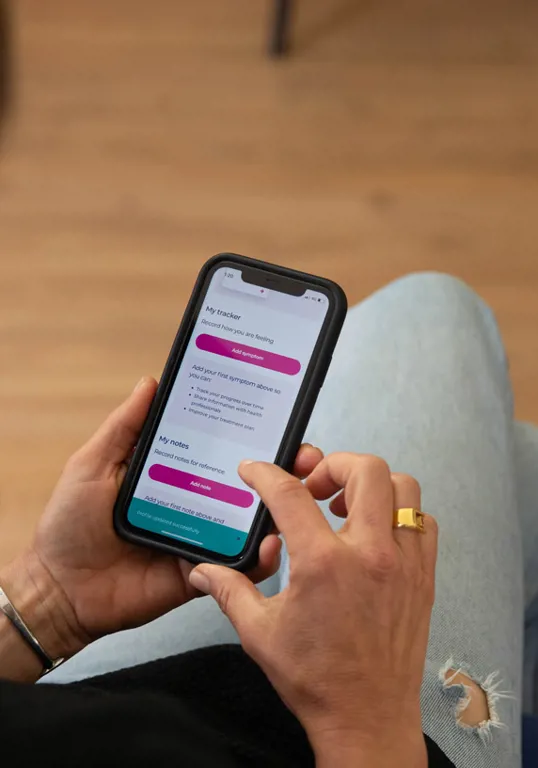




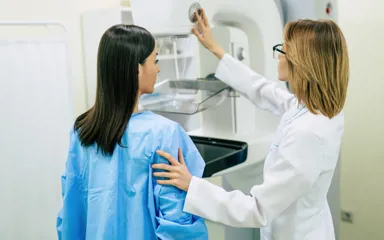
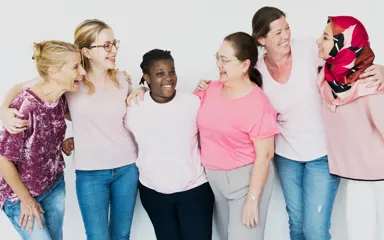
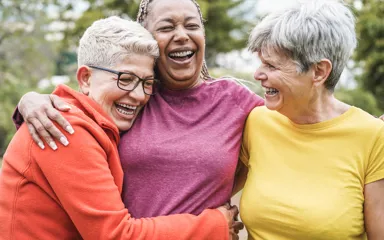
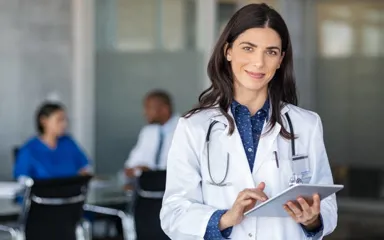
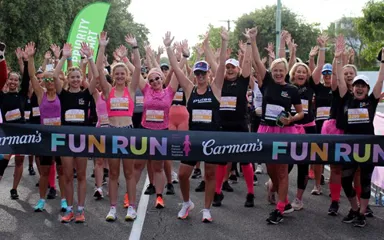
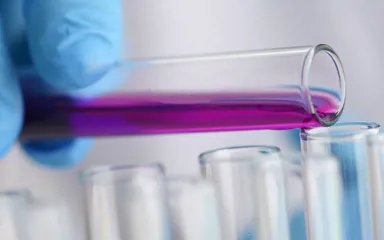
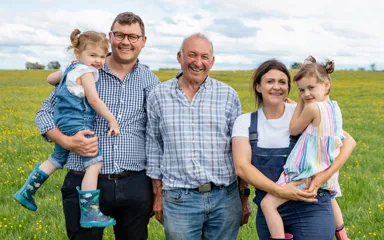







Listen on